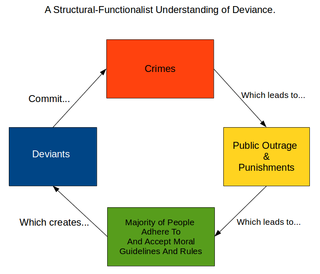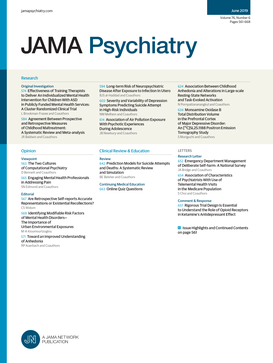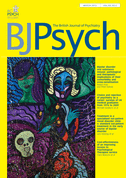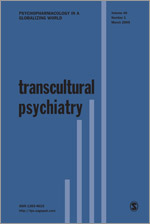Involuntary commitment, civil commitment, or involuntary hospitalization/hospitalisation is a legal process through which an individual who is deemed by a qualified agent to have symptoms of severe mental disorder is detained in a psychiatric hospital (inpatient) where they can be treated involuntarily. This treatment may involve the administration of psychoactive drugs, including involuntary administration. In many jurisdictions, people diagnosed with mental health disorders can also be forced to undergo treatment while in the community; this is sometimes referred to as outpatient commitment and shares legal processes with commitment.

Psychiatric hospitals, also known as mental health hospitals, behavioral health hospitals, are hospitals or wards specializing in the treatment of severe mental disorders, such as schizophrenia, bipolar disorder, eating disorders, dissociative identity disorder, major depressive disorder and many others. Psychiatric hospitals vary widely in their size and grading. Some hospitals may specialize only in short-term or outpatient therapy for low-risk patients. Others may specialize in the temporary or permanent containment of patients who need routine assistance, treatment, or a specialized and controlled environment due to a psychiatric disorder. Patients often choose voluntary commitment, but those whom psychiatrists believe to pose significant danger to themselves or others may be subject to involuntary commitment and involuntary treatment. Psychiatric hospitals may also be called psychiatric wards/units when they are a subunit of a regular hospital.

Forensic psychiatry is a subspeciality of psychiatry and is related to criminology. It encompasses the interface between law and psychiatry. According to the American Academy of Psychiatry and the Law, it is defined as "a subspecialty of psychiatry in which scientific and clinical expertise is applied in legal contexts involving civil, criminal, correctional, regulatory, or legislative matters, and in specialized clinical consultations in areas such as risk assessment or employment." A forensic psychiatrist provides services – such as determination of competency to stand trial – to a court of law to facilitate the adjudicative process and provide treatment, such as medications and psychotherapy, to criminals.

The American Journal of Psychiatry is a monthly peer-reviewed medical journal covering all aspects of psychiatry, and is the official journal of the American Psychiatric Association. The first volume was issued in 1844, at which time it was known as the American Journal of Insanity. The title changed to the current form with the July issue of 1921.

JAMA Psychiatry is a monthly peer-reviewed medical journal published by the American Medical Association. It covers research in psychiatry, mental health, behavioral sciences, and related fields. The journal was established in 1919 and was split into 2 separate journals in 1959: Archives of Neurology and Archives of General Psychiatry. In 2013, their names changed to JAMA Neurology and JAMA Psychiatry, respectively. The editor-in-chief is Dost Öngür.
Liaison psychiatry, also known as consultative psychiatry or consultation-liaison psychiatry is the branch of psychiatry that specialises in the interface between general medicine/pediatrics and psychiatry, usually taking place in a hospital or medical setting. The role of the consultation-liaison psychiatrist is to see patients with comorbid medical conditions at the request of the treating medical or surgical consultant or team. Consultation-liaison psychiatry has areas of overlap with other disciplines including psychosomatic medicine, health psychology and neuropsychiatry.

Leon Eisenberg was an American child psychiatrist, social psychiatrist and medical educator who "transformed child psychiatry by advocating research into developmental problems".

The British Journal of Psychiatry is a peer-reviewed medical journal covering all branches of psychiatry with a particular emphasis on the clinical aspects of each topic.
The Massachusetts General Hospital Psychiatry Academy is an educational organization for psychiatrists, psychologists, other mental health professionals, and other healthcare professionals who diagnose and treat patients with mental health disorders. It is directly organized and managed by the Department of Psychiatry at Massachusetts General Hospital, which is owned by Mass General Brigham, the largest healthcare provider in Massachusetts.
Psychiatry is the medical specialty devoted to the diagnosis, prevention, and treatment of mental conditions. These include various issues related to mood, behaviour, cognition, and perceptions.

Molecular Psychiatry is a peer-reviewed scientific journal published by Nature Publishing Group. It covers research in biological psychiatry.

The Royal Australian and New Zealand College of Psychiatrists (RANZCP) is the principal organisation representing the medical specialty of psychiatry in Australia and New Zealand and has responsibility for training, examining and awarding the qualification of Fellowship of the College (FRANZCP) to medical practitioners.

The Psychiatric Quarterly is a peer-reviewed medical journal that was established in 1915 as The State Hospital Quarterly. It obtained its current name in 1927. The publication's founding editor-in-chief was Horatio Pollock.
Psychiatric Services is a monthly peer-reviewed medical journal covering research on psychiatry. It is published by the American Psychiatric Association and the editor-in-chief is Lisa Dixon.

Transcultural Psychiatry is a peer-reviewed academic journal that publishes papers in the fields of cultural psychiatry, psychology and anthropology. The journal's editor-in-chief is Laurence J. Kirmayer. The Associate Editors are Renato Alarcón, Roland Littlewood and Leslie Swartz. It has been in publication since 1964 and is currently published by SAGE Publications on behalf of the Division of Social and Transcultural Psychiatry of McGill University. It is the official journal of the World Psychiatric Association Transcultural Psychiatry Section and is also published in association with the Society for the Study of Psychiatry and Culture.
The Institute of Human Behaviour and Allied Sciences (IHBAS), formerly known as Hospital for Mental Diseases, Shahdara, is a mental health and neurosciences research institute based in Shahdara, New Delhi, India. IHBAS is the largest mental hospitals in the world in terms of number of patients served and area of campus. It also houses the state mental health authority (SMHA) of Delhi.
Brain and Behavior is a monthly peer-reviewed open access scientific journal covering neurology, neuroscience, psychology, and psychiatry. It was established in 2011 and is published by Wiley-Blackwell. The editor-in-chief is Nutan Sharma.
The International Review of Psychiatry is a bimonthly peer-reviewed medical journal published by Taylor & Francis on behalf of the Institute of Psychiatry. The editors-in-chief are Dinesh Bhugra and Margaret Chisolm. The journal was established in 1989.

Mental healthcare in India is a right secured to every person in the country by law. Indian mental health legislation, as per a 2017 study, meets 68% (119/175) of the World Health Organization (WHO) standards laid down in the WHO Checklist of Mental Health Legislation. However, human resources and expertise in the field of mental health in India is significantly low when compared to the population of the country. The allocation of the national healthcare budget to mental health is also low, standing at 0.16%. India's mental health policy was released in 2014.










